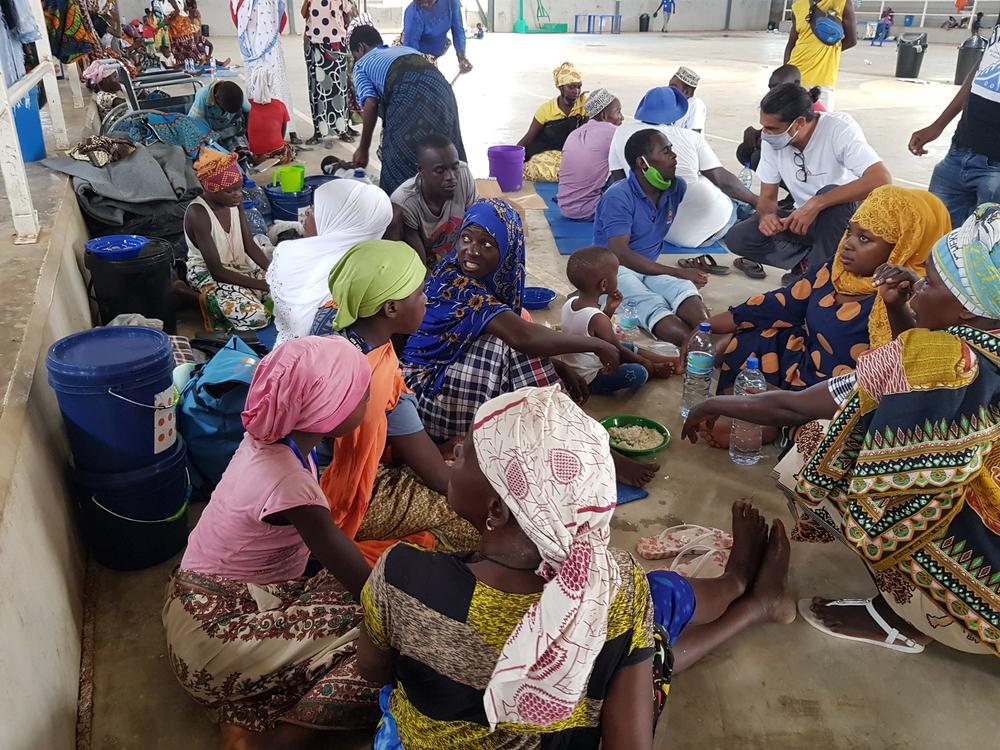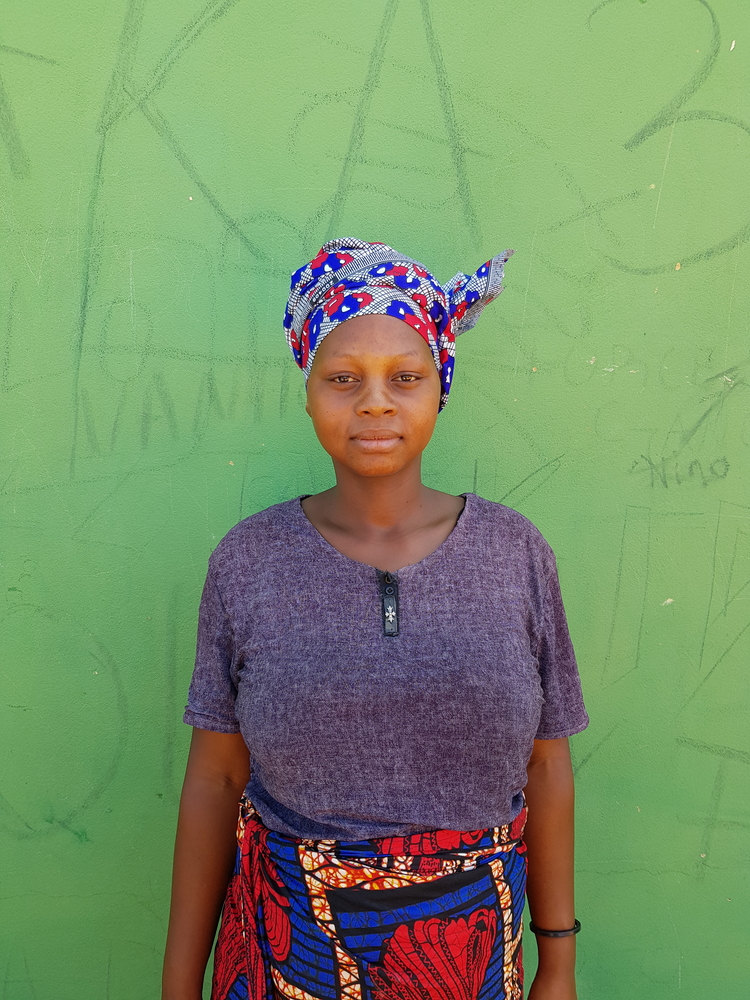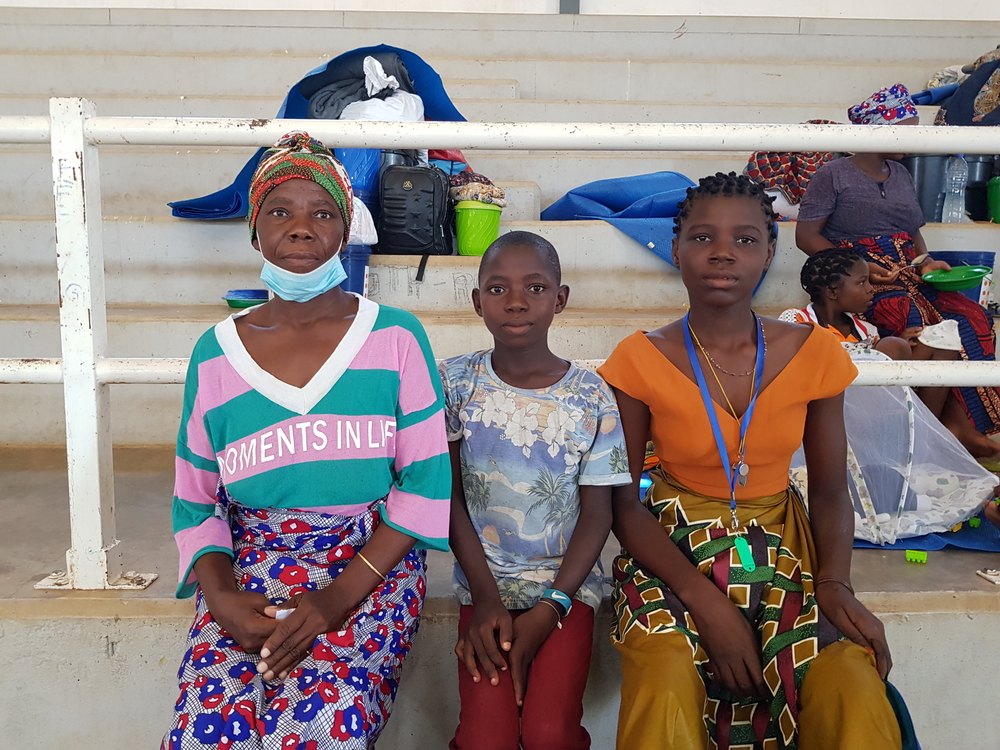Fear and loss for people fleeing violence in Cabo Delgado

Over the past few days, hundreds of people have arrived in the provincial capital city of Pemba, Cabo Delgado, fleeing from the violent attacks that took place in Palma last week. Mozambique, 2021. © Amanda Furtado Bergman/MSF
The attacks on Palma, Cabo Delgado province in northeastern Mozambique, at the end of March drove thousands of terrified people from their homes. People fleeing headed for Afungi – located about 25 kilometres away – and also Pemba. Today, many are still riven with fear, with no news of the whereabouts of their loved ones. Many families were separated when people were evacuated from Afungi, as priority was given to women, children, the elderly and disabled and those who were seriously injured.
An estimated 90 per cent of people that made it to Pemba are staying with relatives and friends. But those who have no one to host them have been left in limbo, living in the hope of reuniting with those who were left behind. Doctors Without Borders/Médecins Sans Frontières (MSF) staff recently assisted two women caught up in the crisis, and here they tell their stories.
- Margrete: “We were scared in Palma, we lived in fear”

© Amanda Furtado Bergman/MSF“I want to reunite with my husband so we can start over and see how we can move on with our lives,” says Magrete, who fled her home during the recent attack on Palma and is currently staying in a temporary shelter set up in a stadium in Pemba, the capital of Mozambique’s Cabo Delgado province.
“I got a call from my husband at around 3 pm on 24 March,” remembers Magrete. “He warned me that the situation was not good and that I should leave our house with our children and meet him at his workplace. Even before we left the house, I could already hear the sound of gunshots in the city. We ran to my husband’s office, and we hid in the backyard. There were others there too.
“Soon we realized we were not safe there and my husband helped me and our children over the fence, and we ran away. Some people didn’t manage to escape. We don’t know what happened to them, if they died or were kidnapped.
“We were on the outskirts of Palma, by the beach. We stayed there for two days. On the third day, we had to run away from the attacks again, they had found us. We kept on running along the beach towards Afungi; others ran into the water and never came back out. For days we didn’t eat anything. We drank water from small streams and ponds that we found along the way.
“We arrived at Afungi together: me, my husband and our two sons. But when the boat came to rescue us, they said my husband would have to wait until the next day – they were prioritising women and children. My husband has a mobile phone, but I haven’t been able to get through to him since I arrived here. I don’t know where he is or what condition he is in.
“We were scared in Palma, we lived in fear. We knew other villages had been attacked, because I lost contact with my parents who lived in Quinina, in Nangade district [which has been attacked multiple times since 2018]. My nephew was kidnapped in Palma, and we don’t know where he is. And now I’ve lost contact with my husband too…
“I’ll wait here for a few days, but if I can’t get in contact with my husband, I’ll need help to get to Mueda. I’m going to try and find relatives and look for someone there who might have news of my husband. I’d like to ask for help for the people still in Afungi, the ones who were left behind. They need to bring them here. I want to reunite with my husband so we can start over and see how we can move on with our lives.”
- Zainabo: “I lost everything, including my eldest son”
 © Amanda Furtado Bergman/MSF
© Amanda Furtado Bergman/MSFZainabo is a mother of three and one of many displaced people currently sheltering in a stadium in the city of Pemba, the capital of Mozambique’s Cabo Delgado province. The recent attack by insurgents on the town of Palma in March forced her to flee for her life, leaving everything behind, including her eldest son.
As I made my way through the stadium, where MSF teams are providing medical care, Zainabo called out to me, saying: “Mama, I’m not well. My heart is aching.” When I asked what happened, she told me her story.
“In 2006, I left Nampula for Mocimboa da Praia,” said Zainabo. “I opened a small business where I sold food and drinks. But when the attacks happened in Mocimboa da Praia [in 2020], I decided to move to Palma. I carried on with my business there and was able to make a living, but when this attack happened, I lost everything, including my eldest son. We became separated, and I don’t know where he is now.
“We were altogether when it happened. But as soon as we heard gunshots, we panicked and ran in different directions. I fell on the ground and people carried me into a backyard, where my two youngest children were.
“We left Palma and headed for Afungi [about 25 kilometres away]. We were scared and we hoped we’d receive some kind of help in Afungi, but the walk there was difficult – it was a miracle we made it. We were constantly hearing gunshots and having to run. We were lucky to get there.
“I and my youngest son arrived here [in Pemba] by helicopter. My daughter came later by boat. But I didn’t want to leave. I told the people who were helping us in Afungi that I couldn’t find my son. But they said I had to leave and that they would look for him. They took my picture and said that once they found him, they’d show him the picture, so that he knows I came here. They gave me a phone number to call for news in case they find him. But I don’t have a phone.
“I don’t know what I’m going to do. I have nothing. I don’t have family in Nampula, where I’m from – I left a long time ago. I have my children to look after, and I’m very worried because I haven’t found a place for us to go yet. For now, I’m staying here. But I need help.
“I can’t go back to Palma. I saw the violence with my own eyes. I lost a nephew, they decapitated him. I can’t go back.”
Many families were separated when people were evacuated from Afungi, as priority was given to women, children, the elderly and disabled and those who were seriously injured. As a result, many mothers, wives and sisters are now on their own, with no news from their loved ones, as communications with Palma and Afungi remain down*.
An estimated 90 per cent of people displaced by the recent attack in Palma that have made it to Pemba are staying with relatives and friends. But those who have no one to host them have been left in limbo, living in the hope of reuniting with those who were left behind.
Patient Stories
Margrete and Zainabo are two women among many others who fled Palma. They are receiving care from MSF at the stadium in Pemba.